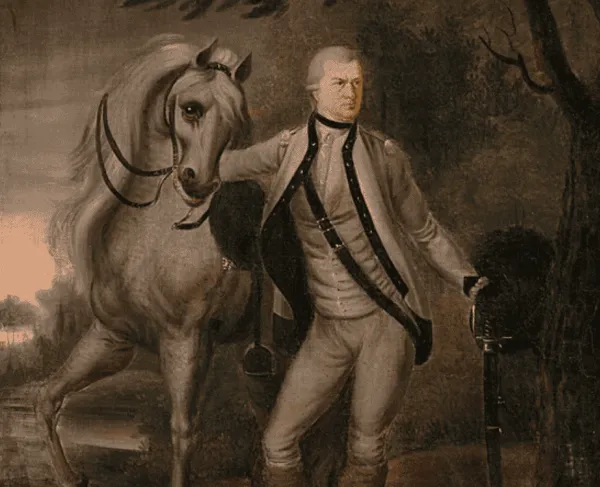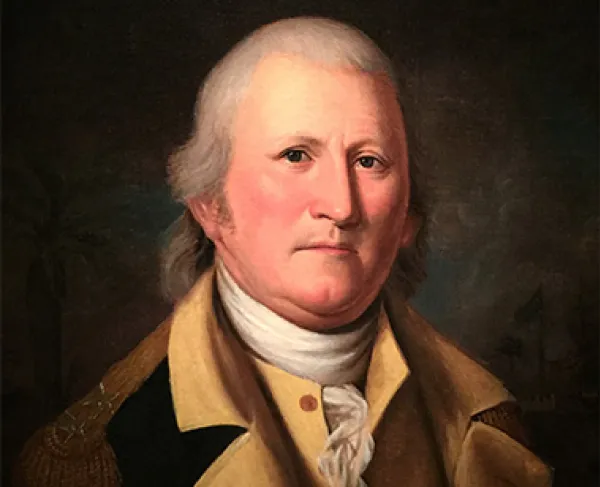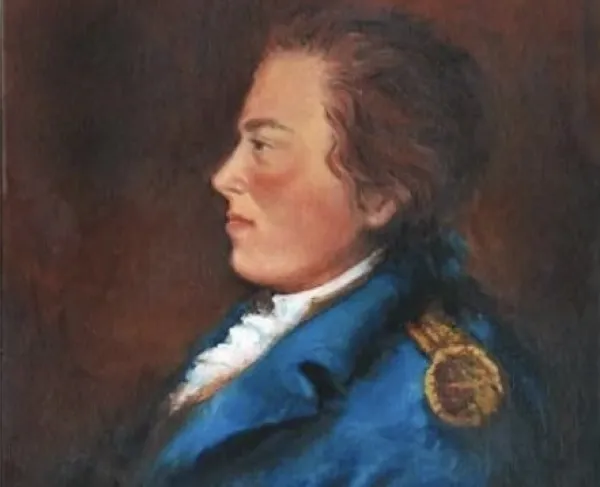Peter Horry

Peter Horry was born to a Huguenot family in Prince George Winyah Parish, South Carolina-modern day Georgetown- in 1743. Horry began engaging in mercantile ventures by the 1760s despite his father being a prominent and wealthy planter in the area. By taking finances over the plantation, Horry effectively lost his inheritance of 475 acres of land.
In June of 1775, Horry made a career change that would alter the trajectory of his life and what would become his home state. At this time, Horry commissioned as an officer alongside Patriot leader Francis Marion, served under William Moultrie in the Second South Carolina Regiment. A year later, Horry and Marion proved themselves at the Battle of Sullivan's Island on June 28, 1776. In a fort built from palmetto logs, the Second South Carolina, with only 435 militiamen, successfully repelled a massive British naval assault, composed of almost 3,000 men, on Charleston. The successful defense forced the British Navy to retreat to New York, not to return until 4 years later in 1780. After the battle, Horry was promoted to the rank of major.
By 1779, Horry had already made a meteoric rise to the rank of Lieutenant Colonel in the Continental Army. However, on May 12, 1780, Horry witnessed the catastrophic fall of Charleston, which saw the surrender of 5,000 Americans under the command of Benjamin Lincoln. With few men left to command, Horry made his way to North Carolina to join the command of Johann de Kalb as an observer. Upon completion of his brief tenure under de Kalb, Horry returned to the front in South Carolina alongside his wartime friend, Francis Marion, as one of his most trusted officers and confidants. When Marion was summoned to the South Carolina state legislature in the early months of 1781, he entrusted his command to Horry with the orders to prevent all passage to Charleston by Wambaw Creek. Unfortunately, Horry fell ill and was sent home to recuperate. His absence was filled by two other officers, Archibald McDonald and Major William Benison, who ignored information that British troops were advancing on their position. On February 24, 1782, British troops under Lieutenant Colonel Benjamin Thompson successfully routed the American forces, but were eventually turned back. Following the battle, Horry blamed the defeat on Marion's commitment to the state legislature.
Following the conclusion of the war, Horry continued his career in the military until 1806. During this period, Horry successfully mobilized the Sixth Militia Brigade to face off against a rumored French invasion in 1798 and again in 1802 to help fight against a potential slave revolt. During his time in the military, Horry collected a vast array of documents, which he lent to biographer Mason Locke "Parson" Weems, who had finished a biography on George Washington in 1800. Weems was far from an accurate historian, unbeknownst to Horry, who found out that Weems had embellished his stories of Francis Marion in the final version of his book Life of Marion in 1809. Horry was infuriated by the changes made and distanced himself from the publication.
Horry ended up owning a home in Columbia, South Carolina, which still stands today as the "Horry-Guignard House" at 1527 Senate Street.
Related Battles
37
220
4
205
18
1





